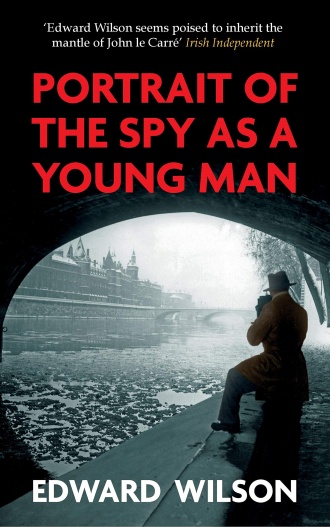This is the last article you can read this month
You can read more article this month
You can read more articles this month
Sorry your limit is up for this month
Reset on:
Please help support the Morning Star by subscribing here
FOR those fans who’ve followed the career of William Catesby across the previous seven novels centred around Edward Wilson’s extraordinarily grounded, cultured and left-wing British spy, his latest makes for a most satisfying read.

Loose ends are, at least in part, neatly tidied up but the first-time Catesby reader shouldn’t be fazed either, as Portrait of the Spy as a Young Man is a compelling standalone experience.
The narrative shifts across the decades, as the nonagenarian recalls his early years to his adult granddaughter — of mixed race and dual heritage, she in one of the book’s many pleasing counterpoints — as a bright Suffolk boy who won a scholarship to Cambridge.
Leaving early in the 1940s to participate in the fight against Nazism, his Flemish background and fluent French see him marked out for Special Operations Executive (SOE) training.
A determined anti-fascist, he is flown into the Massif Central to liaise with and supply weaponry to communist partisans under the command of the almost legendary Georges Guinguoin, aka Lo Grand, in the intensifying war with German and Vichy forces.
What emerges across the undulating Limousin countryside is a complex and shifting conflict where the boundaries between the resistance and collaborators and even some German officers, is blurred and inconsistent.
Even as Guinguoin’s forces grow in scale and success, Catesby very quickly comes to appreciate the divisions within the leftist ranks, not least between the leader and those communist members who want to follow the party line in moving the conflict into Limoges and other large towns.
As a Vietnam combatant, Wilson has knowledge of front-line conflict and his descriptions of both the resistance’s hit-and-run attacks, barbaric Nazi reprisals and the full-scale Battle of Mont Gargan leave the reader scrabbling for breath as serpentine betrayals and massacres swirl around the main characters.
Wilson perhaps allows Catesby almost too many ringside seats of importance to be entirely believable, from being present at the Nazi sting in Lyon that ensnared Jean Moulin, another key resistance leader, to being the first on the scene after the horrific Nazi massacre at Oradour-sur-Glane.
Unlike his previous novels, where the blending of character and context is faultless, Wilson slightly overdoes the contextual didactism here with slabs of explanations as to who is who and what is what and perhaps he doesn’t quite trust the reader to be attentive enough to absorb more subtle hints.
But these are minor quibbles. This is a moving and illuminating book, one that rightly burns with Catesby’s ongoing sense of injustice as to why so many Nazis and collaborators were either helped to escape justice or little more than a decade later, under the French Fourth Republic, allowed back into public life to follow vendettas against the surviving partisans.
It is to be hoped that Edward Wilson still has a few more stories to tell from his spy’s impressive back catalogue. But if this is truly the last we will read of William Catesby, then we must thank the author for allowing us to witness the utterly compelling life of such a fine and memorable creation.
Published by Arcadia Books, £14.99.









